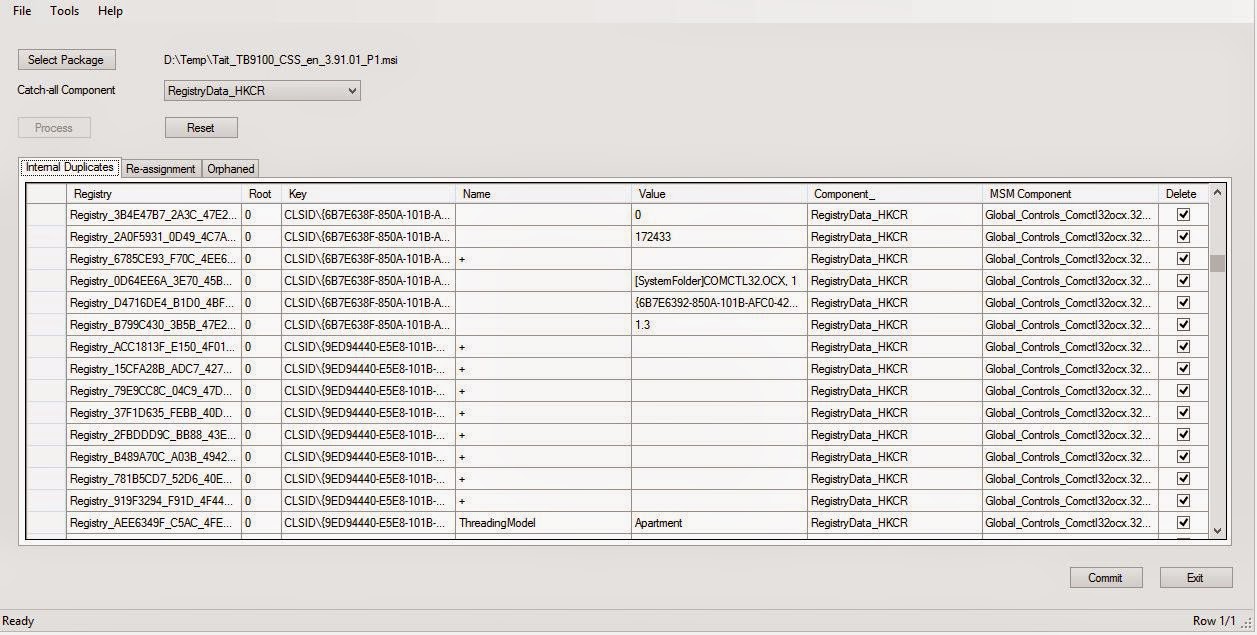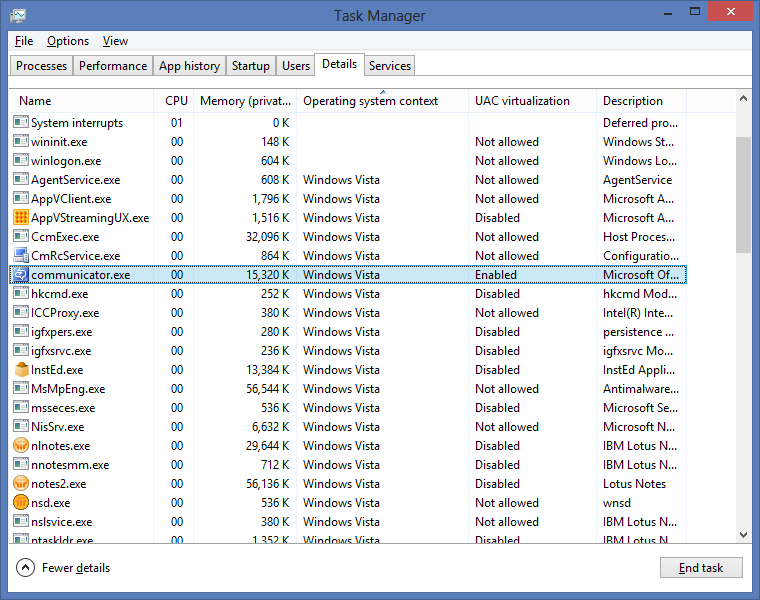The Catch-All Component

One of the fundamental problems inherent in all packaging tools which use snapshotting to produce an MSI package, e.g. Wise Package Studio, MSI Studio Pro, AdminStudio, etc, is its inability to associate registry entries with their respective components. The result is packages where COM registration data that hasn't been moved to their respective advertising tables (ProgId, Class, TypeLib, etc), and may leave behind several (hundreds) entries in the "Catch-All" component. This problem is further compounded when common run-time files (such as MsComctl.ocx, ComDlg32.ocx, etc) are replaced with merge modules, which leave behind several orphaned COM registration data in the Registry table - thus leaving no longer having the original file to correctly reference. I feel that this is something that these package authoring vendors need to address, especially with major vendors like Flexera, who's Repackager utility has largely been unchanged for several versi...
